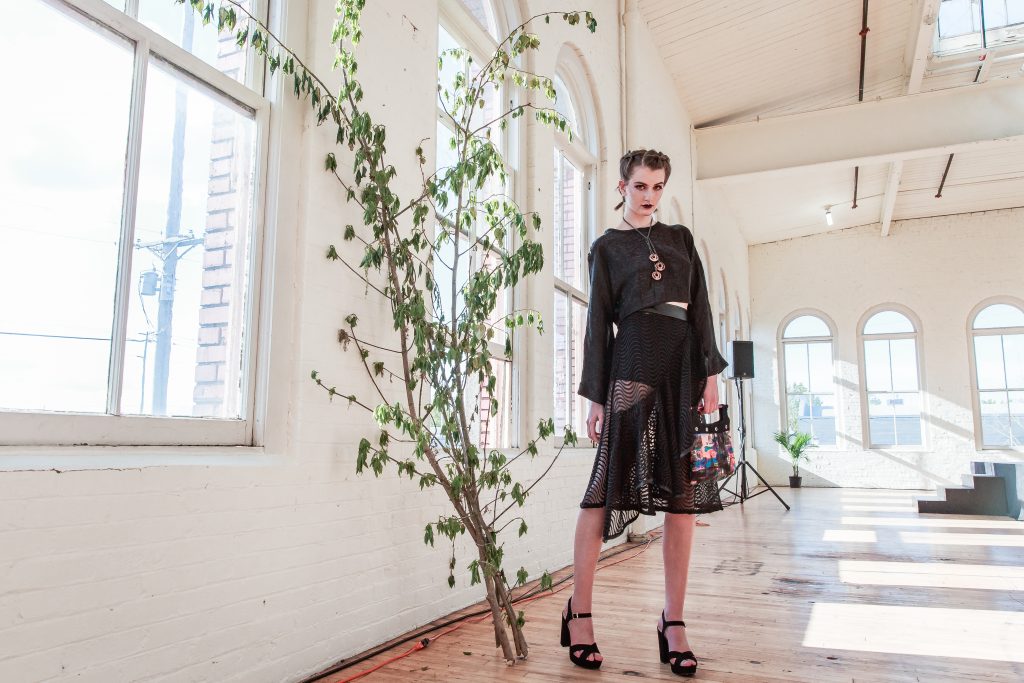Sustainable Fashion. via Flickr. Photo Credit: Nic Raingsey
By Aleah Cole
Ten designers and fashion retailers have shifted to sustainability to improve consumers wear relationship and to improve the environment.
Professional female designers have been thinking about changing the way clothes are being made just like when people are more concerned about what they eat and what they apply on their bodies. Designers think that wearing suitable clothing or at least being concerned of its material can also help create a cleaner environment.
Fast-fashion has its own negative environmental impact, i.e, the mass production of their up-to-date styles which are every minimalists favorite, it creates water pollution as well as an increase of toxic waste. Their garments are inexpensive and are quickly bought, but it is one stop to the trash.
Below are 10 fashion labels are shifting to eco-friendly clothing by using raw and recyclable materials. To name a few, the top 10 fashion labels that are and will be a sustainable brand are helping the environment and protect their customers from wearing harmful materials.
Stella McCartney– A fashion designer who has always innovated her ready-to wear clothing by natural fibers, organic materials, recycled nylon since the 90s – she has been way ahead of her time.
Reformation – a fast-fashion company that updates their new styles every week on their website are taking an opposite approach by forging most of their clothing through recycled substances. Such as, “Green building”; allowing their materials like LED fixtures, rammed earth, recycled fabric insulation, and other stuff to make their stores as sustainable as possible.
Mara Hoffman is a leader in sustainable fashion. The designer encourages sustainability by “reevaluating” how her clothes are made. Her eco-friendliness approach are made from used recycled fabrics, fibers, linen, organic cotton, sustainable packaging & branding.
Eileen Fisher is best known for its minimalist wardrobes and staples that are made from Organic, recycled, & sustainable garments, natural dyes. The designer is aware of how bad clothes are being produced so she refines her clothing through this method.
Everlane is an e-commerce platform that is known for selling recycled denim. The company has a “Radical Transparency”approach to sustainability by producing cleaner denims from recycled water. The company also plans to redevelop fabrics and all unwanted materials that contain synthetic fibers into recycled elements.
Ninety Percent is a sustainable contemporary womenswear label based in Camden,London. The label generates their clothing through recycled and organic materials for their daywear outfits. Their company shares their profits from charity for designers who can create and manufacture their own collections.
Patagonia is known for its outer gear and for selling their outerwear in 100% cotton materials,wool and nylon since 1996. The company is partnered with “Worn Wear” which allows consumers to give away their worn patagonia clothing.the Hub plans on cutting down on consumption through recycling and repairing its gears.
Amour Vert is a sustainable fashion label that plans to develop a “better planet” for future generations. The brand translates to “Green Love” which fits perfectly for a sustainable brand. To avoid waste, the company focuses on organic cotton,Tencel, Mulberry Silk and ethical wool.
H&M Conscious is a collection that tries to lessen the negative impacts of the environment like organic cotton and recycled polyester. The company accepts unwanted clothing for their recycle program. The H&M group have used 57% of recycled clothing and plans to reach 100% sustainability by 2030.
Zara, a fast-fashion retailer that exceeds H&M’s quality clothing, plans to make all of their clothes sustainable by 2025; allowing to cut down pollution and plastic uses. The company pledges that all of their clothing will be made of cotton, linen and polyester from organic, recycled and other sustainable materials.
Sustainability is a continuous trend that most female fashion designers are concerned about. As they are catching up with the latest trends and technology, they are choosing the right material for their collection that will better their customers relationship and the environment. Even though, buying fast-fashion is what consumers like, it can harm both themselves and the environment since it is made from harsh chemicals.
Consumers need to realize that buying less and knowing the types materials garments are made from, can help them keep their clothes for a longer time.


